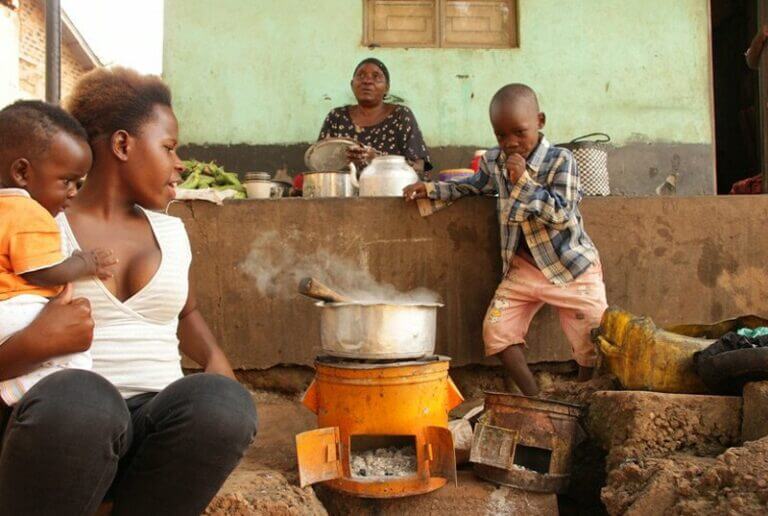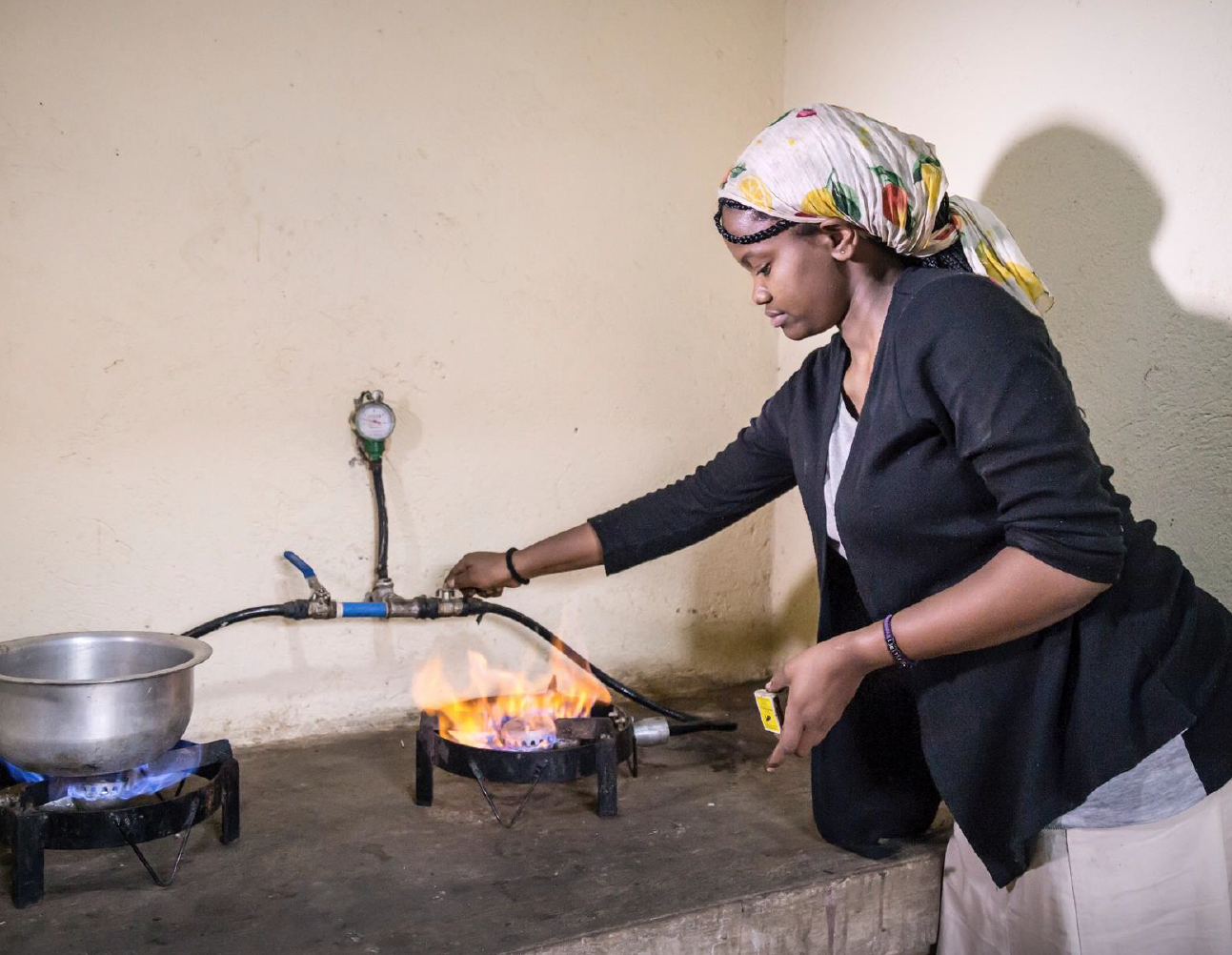
BIOGAS PROJECT FOR HOUSEHOLDS IN UGANDA
Uganda is an important coffee-producing country. It is also a nation where many households still cook over open fires—resulting in both greenhouse gas emissions and harmful smoke exposure.
Many households in Uganda lack access to modern energy solutions and continue to cook using traditional open-fire methods. This practice consumes large amounts of firewood daily, causing significant emissions of harmful smoke and greenhouse gases, while also contributing to deforestation and depletion of the country’s natural resources.
The health impacts are severe—exposure to smoke leads to respiratory illnesses and causes more premature deaths than tuberculosis, malaria, and AIDS combined. Women and children are particularly affected, as they are often responsible for cooking and collecting fuel, which exposes them to health risks and takes time away from education and other vital activities.

Photo: Anthesis
Efficient Stoves
The biogas project provides locally produced, cleaner, and more efficient stoves that use 50% less firewood than traditional stoves. These stoves reduce harmful smoke emissions, lessen pressure on Uganda’s forests, combat deforestation, and help mitigate climate change.
Biogas stoves convert organic waste—such as animal manure and household waste—into a clean, renewable gas. Instead of burning wood or fossil fuels, waste is collected in an airtight container where microorganisms decompose the material anaerobically. The resulting methane is channelled directly to the stove, providing steady, efficient combustion without smoke.
 Photo: Anthesis
Photo: Anthesis
Positive Impacts for People and Climate
-
Improved Health: Reduced exposure to indoor air pollution lowers the risk of respiratory diseases.
-
Environmental Protection: More efficient stoves help reduce deforestation by lowering firewood consumption.
-
Empowered Communities: Time saved from fuel collection allows women and children to focus on education and income-generating activities.
-
Reduced Emissions: Cleaner cooking methods decrease greenhouse gas emissions, contributing to global climate efforts.
Quality Assurance and Certification
The initiative is certified under the Gold Standard, ensuring thorough monitoring, reporting, and third-party verification of the project’s impacts.
The project contributes to the following global goals:

